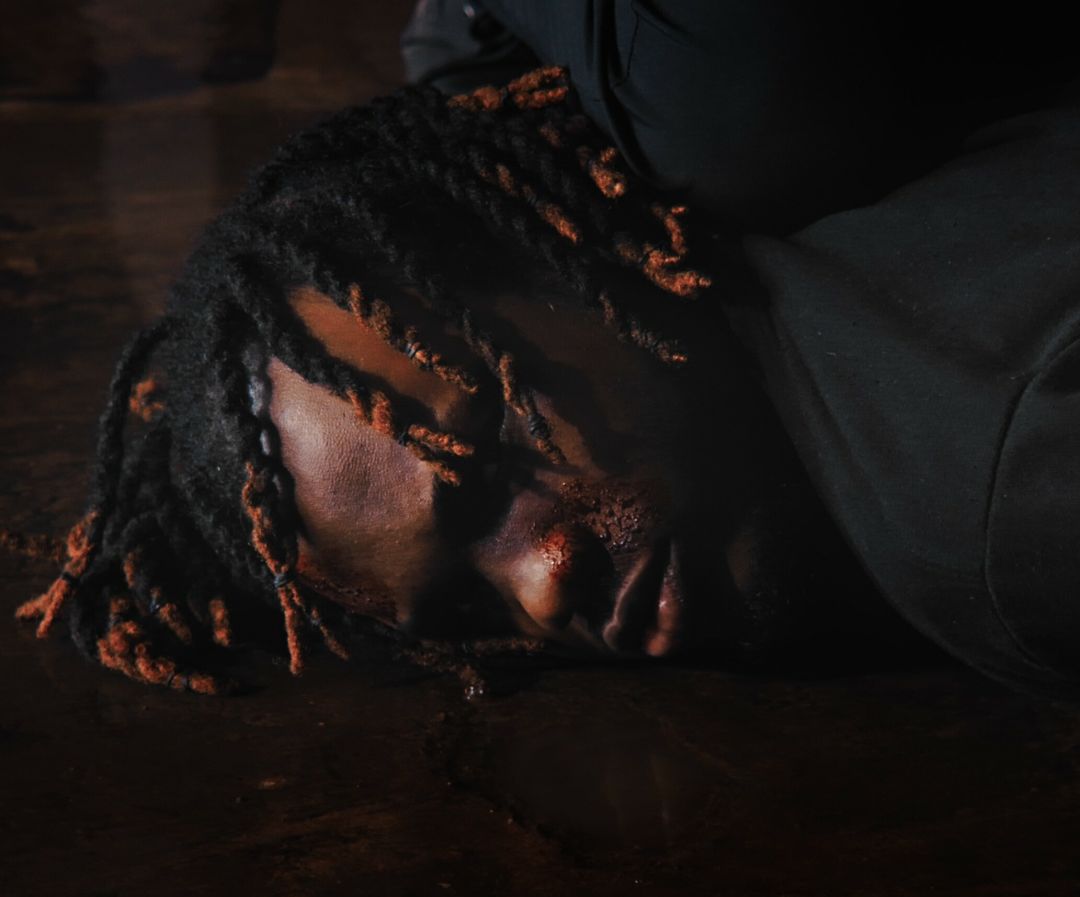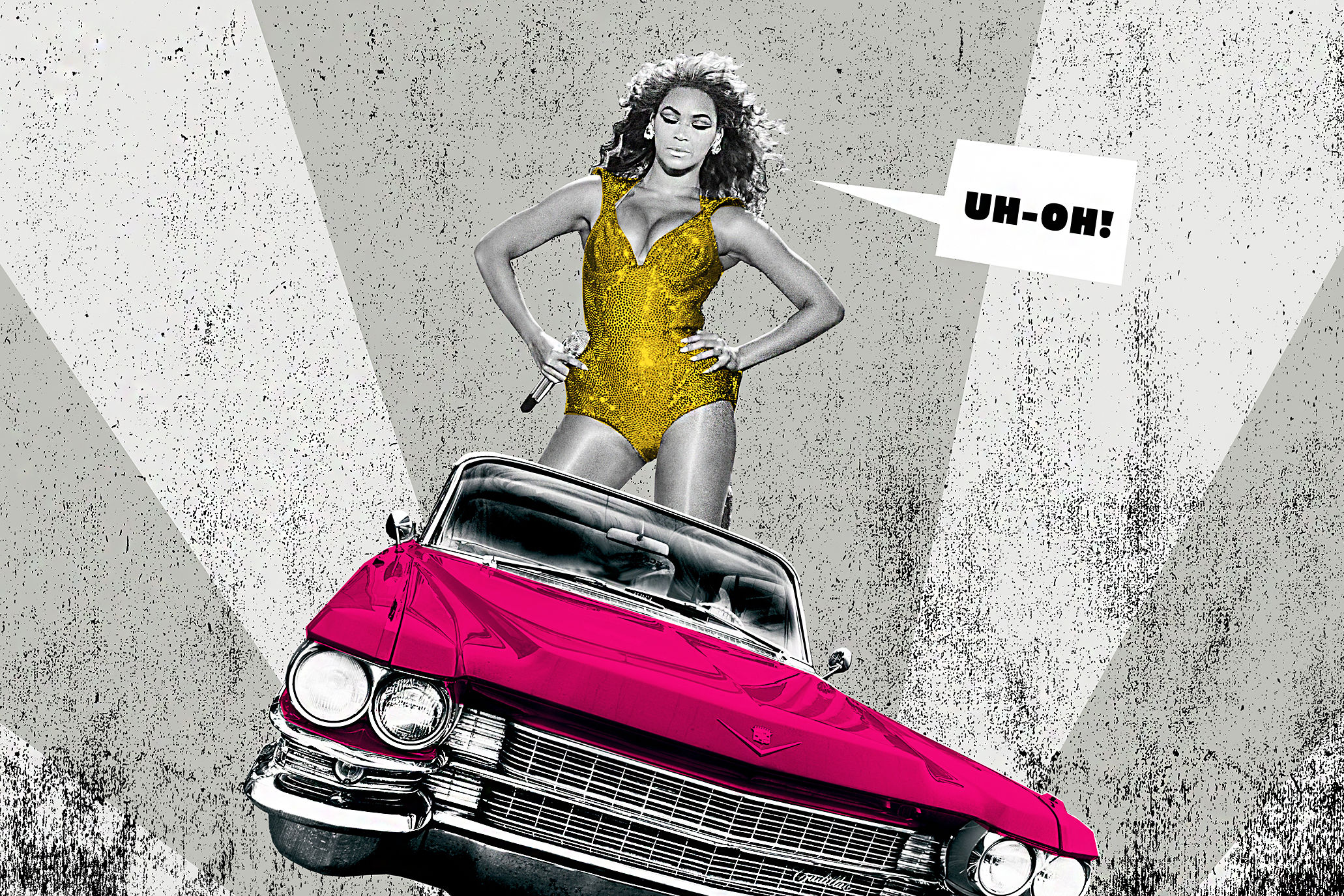Dende’s In Case You Forgot I'm BLACK Tackles Race Issues with Grace and Tact

Dende KamiSama in his new short film, In Case You Forgot I’m BLACK.
Image: Courtesy Dende KamiSama
Just a few weeks into the 2020 quarantine, Houston rapper and singer Dende KamiSama had lost the momentum he worked years to build. The Houston musician was coming off a strong 2019, having released an album, a pair of singles, and performed a series of successful buzz-building shows. The future looked bright, until it didn’t.
“I made an EP chronicling my feelings about where I was in my life,” says Dende about the short film Socially Distant, posted on YouTube in May of last year. The film and accompanying EP earned the rapper some modest praise, perhaps allowing him to retain a semblance of that lost momentum. More importantly, it sparked a creative fire, a new outlet through which to tell visual as well as musical stories.
Something else happened in 2020 that would shape Dende’s life: a series of events that would lead to the release of his latest project, a short film titled In Case You Forgot I’m BLACK. As Dende puts it, the title “came from interactions I had with people on social media during and after the Houston protests against police brutality. I had people unfollow me and a person specifically tell me that they loved my music but they couldn't support me because I was protesting and posting about Black lives.”
The film, released earlier this month, is a powerful 17-minute expression of emotion, ranging from exhaustion, anger, love, and joy, all told through the medium of Dende’s songwriting and vocals. It opens with a series of clips from the aforementioned Houston protests, as well as an uncomfortable look at the last moments of George Floyd’s life before and as he was killed by Minneapolis police officer Derek Chauvin.
After the four-minute intro, the camera cuts to a shot of Dende facedown on the ground, a bloody nose and a knee to his neck, a scene intentionally reminiscent of Floyd’s last moments. Music fades in and soon Dende is rapping from his face-down position. From there, the film takes us through various commentaries on the Black experience. Dende and the film’s director Jtek begin by exploring the systemic use of pop culture as a distraction from legitimate Black issues.
“People love Black entertainers when they want to entertain. People just want us to dance, sing, play sport, and entertain them. The purpose of the dancers as a distraction in the video was because I personally saw the outrage and protest presence die down once there were enough distractions around to appease people,” he says. The visual metaphor is powerful. As Dende’s body lays on the ground, protesters are interrupted and replaced by a dance troupe while the camera pans away from the body. As the dance number ends and the music fades, we pan back to the body in its same location. “I wanted to portray it in a way that was saying, ‘Hey, I know we got distracted, but the body is still laying on the ground,’” he says.
With similar tact, the project also touches on an altogether separate issue of Black identity with the song “DrkSkin.”
“Simply put, I see Black women constantly saying that they don't feel appreciated, loved, valued, or even safe around Black men,” says Dende. “I wanted to make a song to tell them that we do love them, we do value them, they are beautiful, and they should be proud of who they are.” The song serves as both a sonic and visual change of pace: A jazzy R&B performance that sees Dende at a piano in the middle of a house party, surrounded by a joyful group of Black women as he sings their praises.
The project ends with a nod to the future. A performance ostensibly titled “Lil Black Boy” sees Dende sitting at the foot of a young boy’s bed, calmly but passionately imparting wisdom on the child as he absent-mindedly plays with his toys. The song serves as a stark contrast to the message perhaps not so directly given to Black boys in America—one of coldhearted emotionlessness and reactionary violence. As Dende pleads with the “lil Black boy” in the film to be better, to cry and laugh and be himself, we see the artist perhaps attempting to reach back in time and send that message to himself.
As the credits roll on In Case You Forgot I’m BLACK, we can’t help but feel we’re watching the blossoming of a profound artistic career. Dende KamiSama is a truly gifted lyricist and vocal performer, but is perhaps more gifted at distilling big ideas and powerful truths into digestible art. His ability to translate complex emotion—whether dealing with the weight of a global pandemic or the ongoing struggle for racial equity—into an approachable creative expression, is a rare talent shared only with a select few contemporaries.




